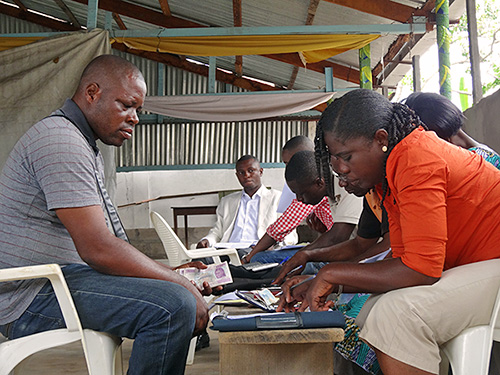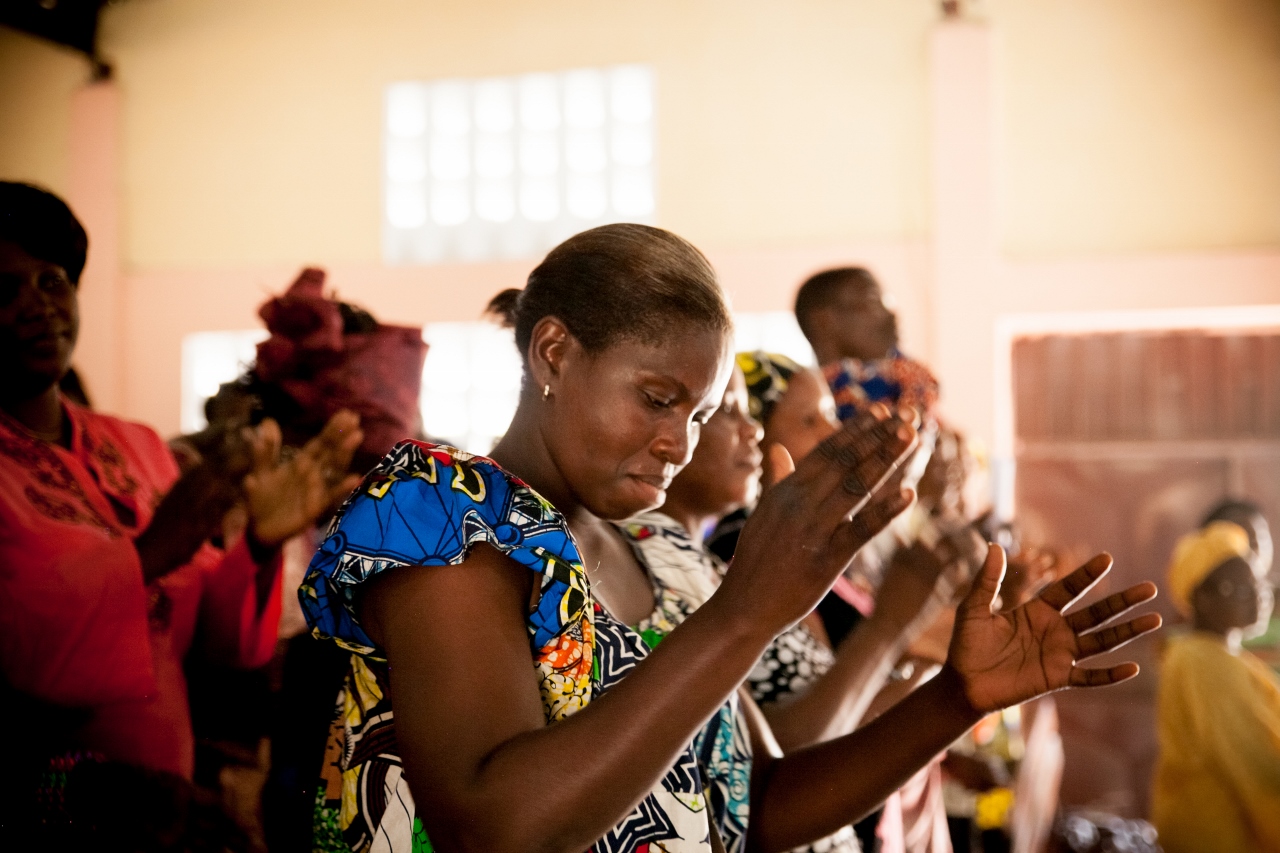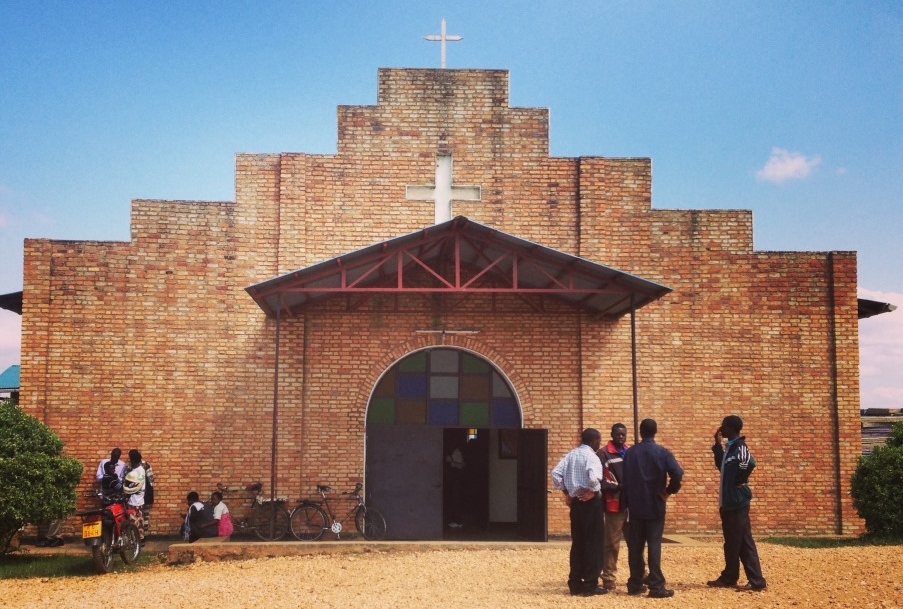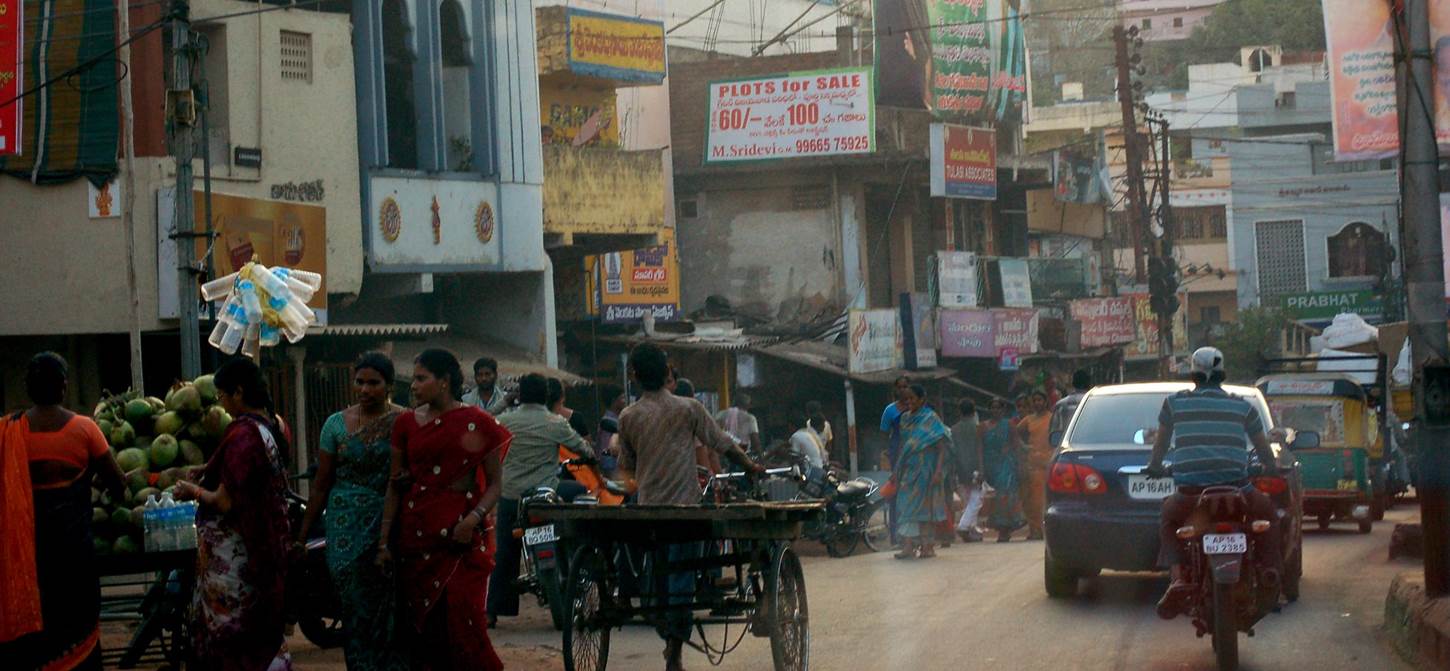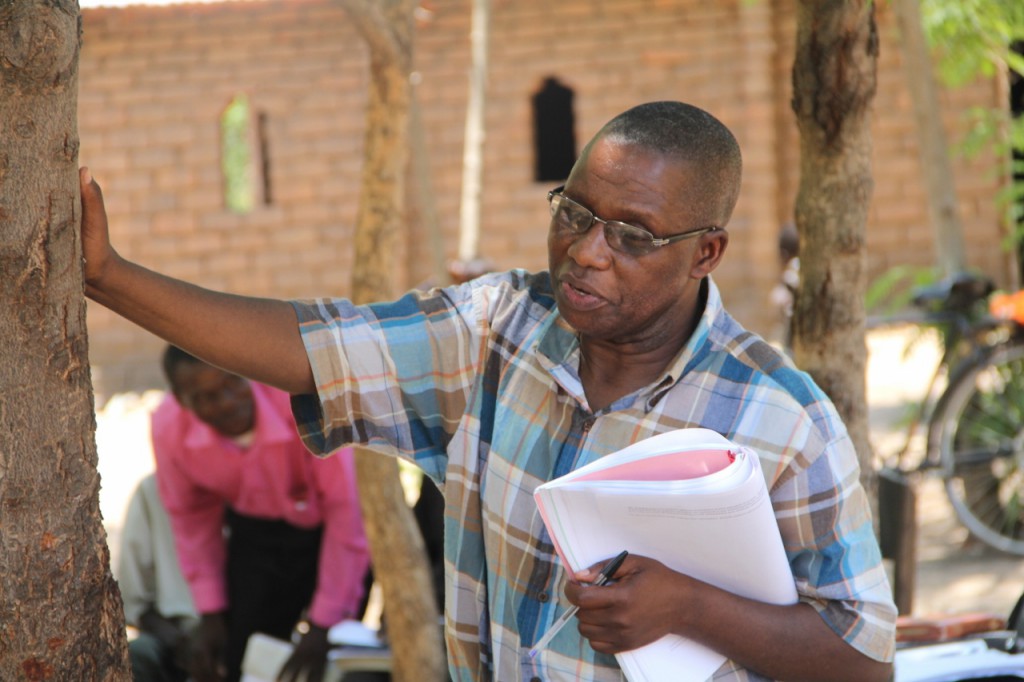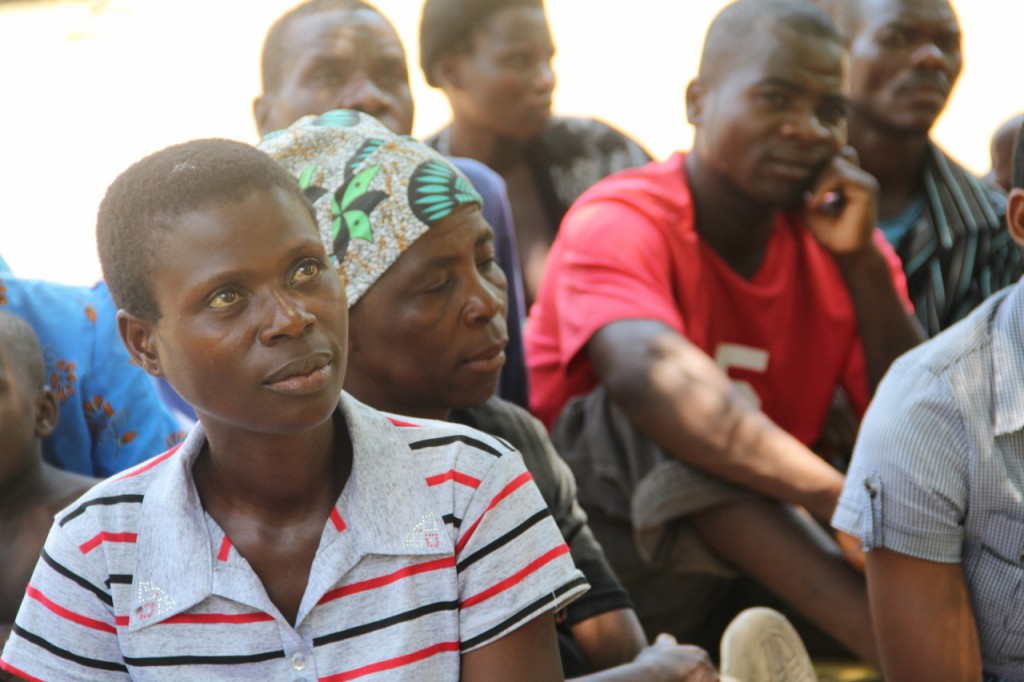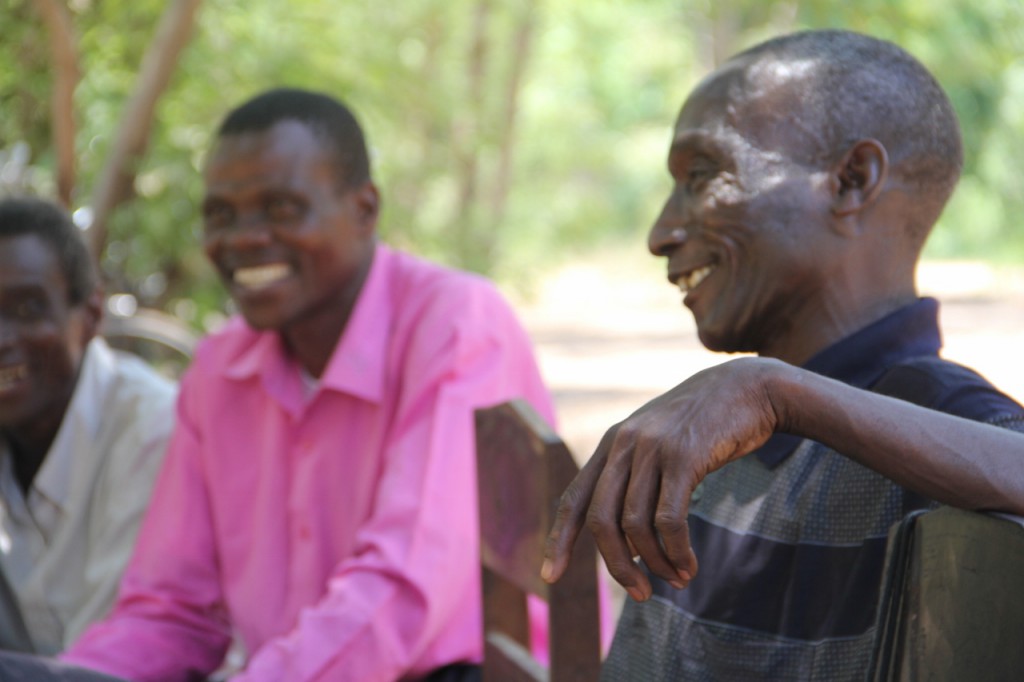by Mara Seibert, reposted from www.maraseibert.com
HOPE recently welcomed three communications fellows, who’ve traveled to the field for a year to report how God is moving in those programs. In this blog post, Mara Seibert, serving in the Republic of Congo, shares her first experience witnessing a community bank meeting.
Makélékélé. The trick is learning to spell it first. The pronunciation just rolls off your tongue … mah-kel-eh-kel-eh. The next trick is getting a taxi to take you there. We took a green taxi to get there, Précy and I. Not that there is anything special about a green taxi in Brazzaville—all of the taxis are a vibrant shade of forest green, populating the streets like a metal forest. Winding through the streets of Brazzaville from HOPE Congo’s office to the neighborhood of Makélékélé is not an easy trek for taxis because of Marché Total: an enormous sprawling market with an ever-present traffic jam going through the middle of it.
As we drove, Précy kept up a running commentary about city life, how most of the population uses the green-painted public transportation: taxis, buses (vans painted green), and even bigger vehicles. Buses are cheaper than taxis but also more crowded. For Précy, they have their own appeal: “Buses are my favorite means of transport. You hear a lot of things. Lies, truths, news …” Taxis squeeze by each other in seemingly incomprehensible patterns with millimeters to spare that left me holding my breath—that would also be because of the wafting aroma of petrol. Finally we arrive near the church of Makélékélé and walk past small stands and businesses selling anything and everything from wine to used clothing, backpacks to hot food, and walk into the group meeting.







